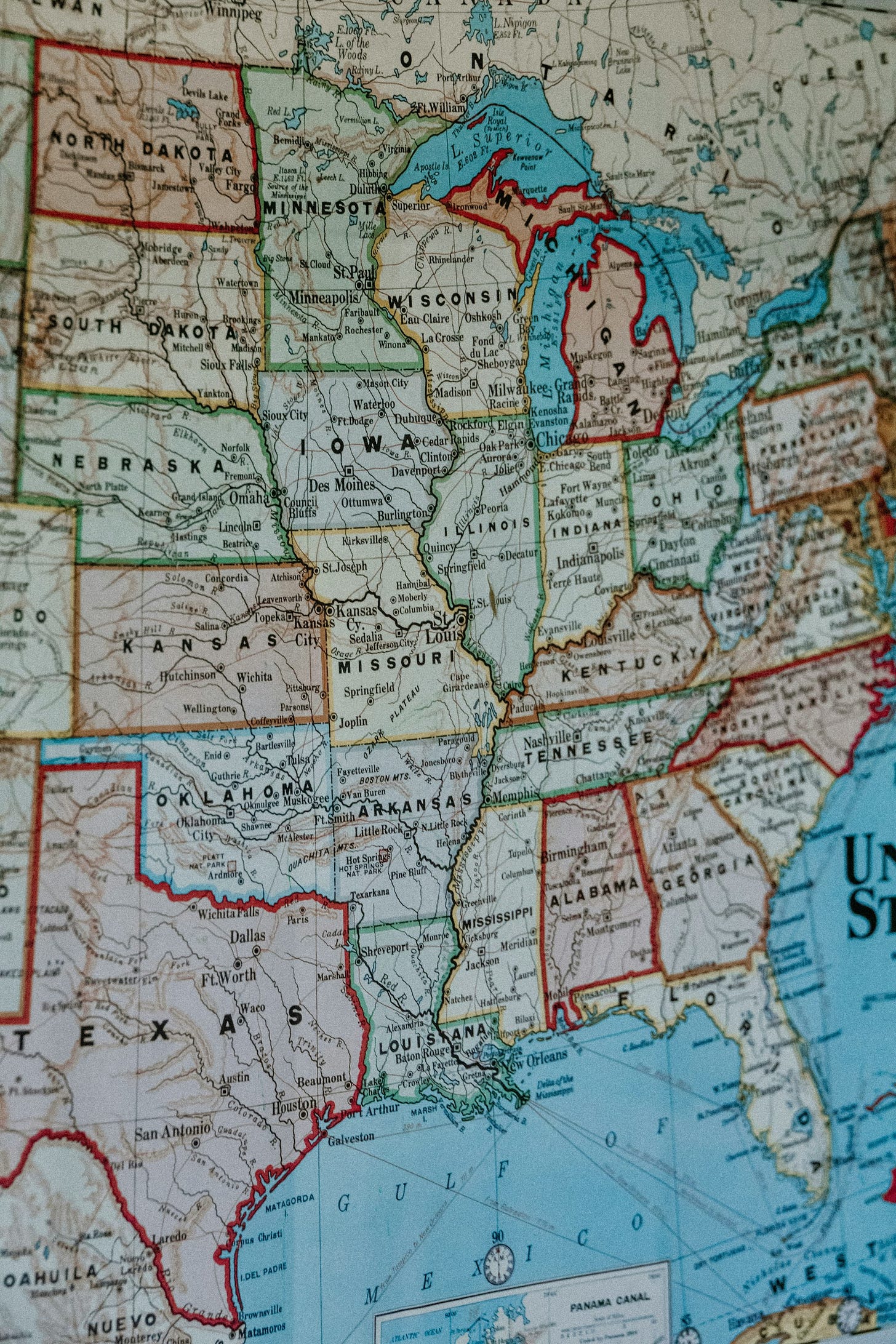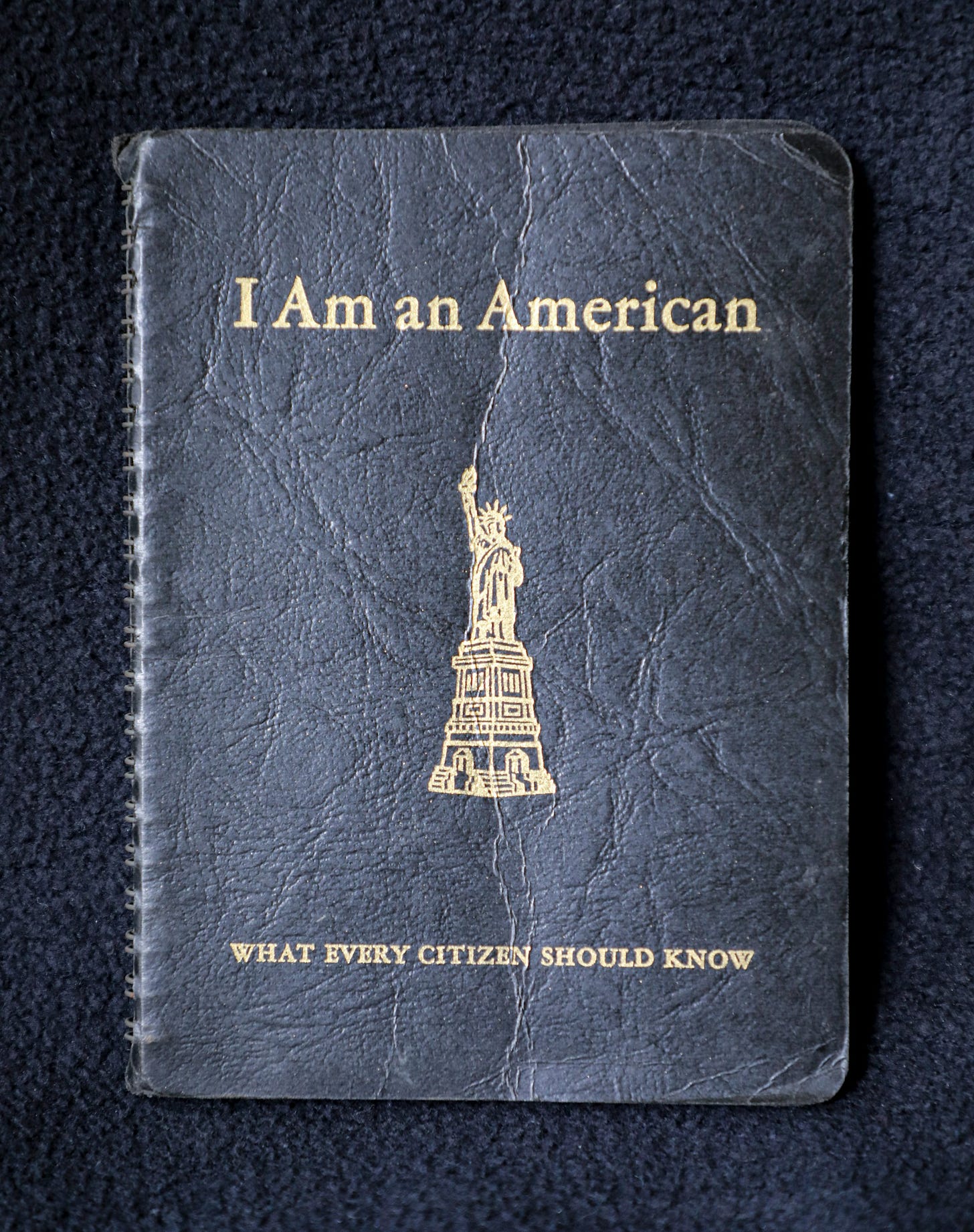The "States' Rights" Idea Makes Citizenship Meaningless
It's more like 50 little countries in a trench coat.

I've heard it said that the United States is less a country and more of a loose federation of small countries under a single name. Little countries in a trench coat, if you will.
My partner said it; I'm quoting him shamelessly.
Except for the trench coat part–that's mine!
The 'States' Rights' argument makes sense to many people. Their idea of Democracy is to let the States decide on social issues so that regions with different political views get a say.
I hate this idea with a fiery passion, and I disagree that it's democratic. Frankly, it was never supposed to be democratic; it was always about oppression and courting the bigot vote.
Don't believe me? I'm more than happy to give a history lecture.

We're going back to the 1960s! Take a trip with me to a magical year, 1964, just a few short years before the first moon landing in July of '69.
Nice.
It was an election year, just like 2024. Incumbent President Lyndon B. Johnson was up against Barry Goldwater, a Republican Senator from Arizona.
Civil rights and anti-discrimination legislation were crucial issues in that election. Oh, hey, it's just like today! Wild!
On July 2nd, 1964, the Democratic President Lyndon B. Johnson signed the Civil Rights Act into law. This provision prevents discrimination based on sex, race, skin colour, country of origin, or religion.
It made it illegal to refuse to hire somebody because of who they were, where they were born or what their anatomy was.
It also officially mandated an end to racial segregation, at long last. That part pissed off a lot of racist white people.
Prior to the Civil Rights Act, people of colour were not allowed to share certain public spaces. Schools were segregated by race, water fountains and bathrooms were split into 'whites only' and 'coloured' – sorry to use that term, but it's the label they used– and discrimination was open and socially accepted pretty much everywhere.
It was a spectacularly shitty time if you weren't a white, straight, cis-gendered, financially successful and able-bodied male. Again, it sounds pretty familiar.
By the way, here's a fun fact: Women still weren't guaranteed the right to open bank accounts or lines of credit without a husband's signed permission until 1974 in the United States! We guaranteed it in Canada in '64 when the American Civil Rights Act was enacted.
The signing of the Civil Rights Act was a significant event that created shockwaves throughout American society. Before 1964, neither Republicans nor Democrats were anywhere close to being 'good' on racial issues. They both sucked majorly, and voting was pretty evenly split for that reason.
But when racist white people started screaming about their precious blonde little cherub babies having to go to school with Black children, the Republicans saw an opportunity.
The Democrats, after all, were the party that made that happen.
Enter Barry Goldwater and his brilliant strategy to win the white supremacist vote: He declared that segregation should not be left to the Federal Government to decide. That was a States' Rights issue.
This was the genesis of the Southern Strategy, and that was the bombshell that flipped the Republican party into the party of white grievance as we know it today.
The Southern Strategy was simple: use euphemistic language and dog whistles to mask racist rhetoric and promote policies that indirectly targeted Black people.
They stoked the fears of white racists, spread misinformation, and pretended it was all about 'being truly democratic' about the issue.
That was bullshit. The only thing they were trying to do was secure an electoral win. Thankfully, they failed. Lyndon B. Johnson's Civil Rights Act and the thinly veiled racism of the Republicans delivered a Democrat victory once more.
But the Republicans saw the potential after checking out the numbers. It may not have worked yet, but it certainly could in the future. They just needed to work it a little longer.
And now, here we are.

So, let's take this and really think about it. What does "States' Rights" really mean in practice?
It would mean that your status as an American citizen means nothing beyond obtaining documents for travel. I'm not joking; I'm dead serious.
If the United States is a country where all American citizens are entitled to the same rights, then those rights need to be guaranteed by a unifying authority, right? In this case, the Federal Government of the United States.
If the Federal Government does not guarantee them, and the decision of which rights you have is left up to the individual states, then your citizenship doesn't matter.
By definition, you are not granted equal rights as American citizens.
If, for example, the decision of whether to allow gay people to get married is left to the states, then your rights change depending on which side of the state line you happen to be born on.
As a gay man, your right to get married to your partner depends on which state you live. If your state allows gay marriage, great! But if you have to move for any reason, there's a chance your marriage will not be considered legal and valid when you do.
So, your rights can be taken away just by moving a few states over, even though you're still in the same country.
This applies to all of the social rights American citizens are supposed to have: interracial marriage, women's suffrage, protections against discrimination based on race, gender, or sexuality, and so on.
If one state voted to enshrine the rights of Black people to vote, but the next state over decides to take their vote away, then you can't say they're equal under the law. I doubt they'd agree that that's a democratic system.
We're seeing the problem with that right now; some pregnant people are being forced to travel for hours to obtain reproductive healthcare. Many of them are dying because their doctors don't want to risk losing their medical licenses for performing a life-saving abortion procedure.
If your rights to bodily autonomy differ from state to state, then being an American citizen does not guarantee your fundamental human rights.
If you want to claim, as the Founding Fathers of your country did, that 'all men are created equal'– loads of irony there, considering they owned slaves– then you have to grapple with this.
The question of which rights you have as an American citizen should be mandated by the Federal Government so that they remain assured and irrevocable.
Otherwise, you don't have a country. You have a bunch of little countries in a trench coat.
Solidarity wins.


